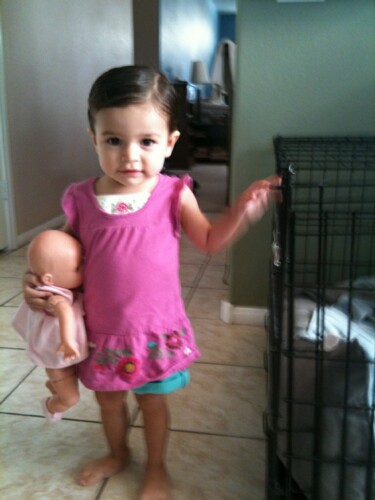 My nephew is due to be born any day now, and my niece (1 1/2 years old!) is adorable, I'd like to introduce a little bit about Hawaiian names and put up a few suggestions for a Hawaiian name if you or someone you know is expecting. I don't know what my nephew will be named when he is born (I'm not sure if his parents are set on any ideas), but here are some ideas for his parents and others who are looking for a beautiful, cultural name for their child.
My nephew is due to be born any day now, and my niece (1 1/2 years old!) is adorable, I'd like to introduce a little bit about Hawaiian names and put up a few suggestions for a Hawaiian name if you or someone you know is expecting. I don't know what my nephew will be named when he is born (I'm not sure if his parents are set on any ideas), but here are some ideas for his parents and others who are looking for a beautiful, cultural name for their child.
In Hawaiian culture, there are several different types of names. Names weren't chosen simply because they sounded great, they were chosen because of their specific meaning or to commemorate an event or relative. There are several different types of names:
- inoa po - a name received in a dream. It was believed that if a relative received a name in a dream and didn't give the child that name, then the child would be cursed
- inoa ho'ailona - a name received in the form of a natural phenomenon or a mystic sign
- inoa 'ulaleo - a name heard
- inoa ho'omanao - a name for an event or person
- inoa kupuna - a name from an ancestor
- inoa ewe - a name based on traits or personality
In Hawaiian culture, the longer the name, the more power it has. This is part of the reason why many people in Hawai'i have long Hawaiian names (though they may often go by a shorter version of their name for day-to-day activities). But nowadays shorter Hawaiian names are quite common as well and have become a point of pride and reflection for individuals upon his/her Hawaiian heritage.
Most Hawaiian names are unisex, though most are given to one gender more often than the other gender. For those in Hawai'i, it might be better to stick with the gender norms while those on the mainland could have more choice, particularly if the child will be the only one with a Hawaiian name in a 100 mile radius. I found two websites that have an extensive listing of Hawaiian names. One includes the 'okina, or glottal stop, to ensure proper spelling of the name, while the other doesn't. This second one also includes names that have letters that aren't part of the Hawaiian alphabet. I don't particularly like those names because they aren't truly Hawaiian names, but that's just my opinion.
If there isn't a name on the list that strieks the fancy, then tnother technique that's really popular is to name a child a Hawaiian adjective. This not only ensures that the child's name has a great meaning, but that he/she has a great name as well. Here are some examples below:
- Hau'oli - happy
- Kaulana - famous
- Ikaika - strong
- 'Alohi - bright
- Koa - brave
- 'Alapa - athletic
- Pono - righteous
- Kilakila - majestic
- Kupono - honest
Similar to this is to name children after things in nature, like a star (Hoku) or the rain (ua) or a flower (pua) or a rainbow (anueanue). Here's a link to a good online Hawaiian dictionary. Also by putting together an adjective with a noun (like hokukilakila for "majestic star"), a creative, original yet meaningful name could be given the newborn.
There are also Hawaiian versions of English names. Most of these names are very uncommon and only serve the purpose of knowing a cool alternative to our own name. However, there are a few, such as Mikala (Michael), Kamuela (Samuel), Kimo (James) and Kawika (David) that are given to children quite frequently.

